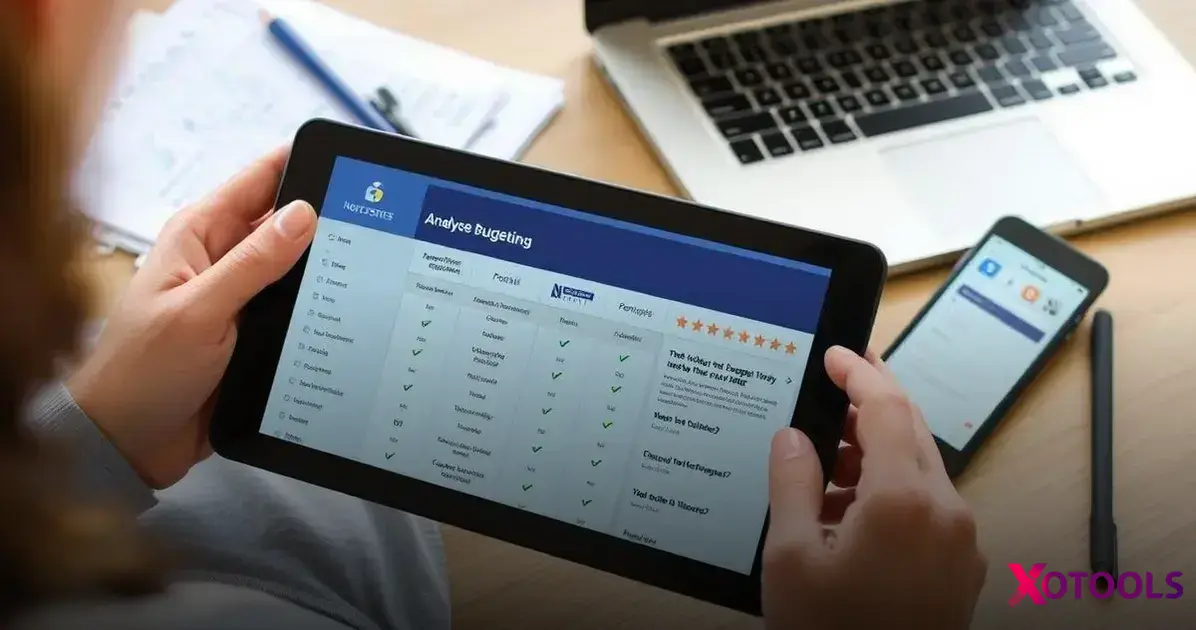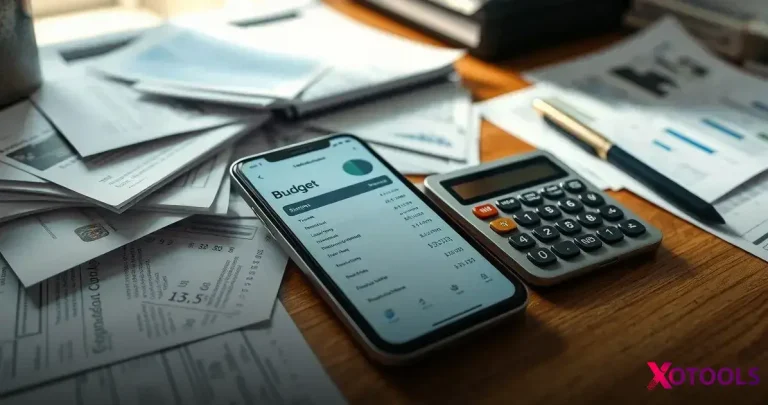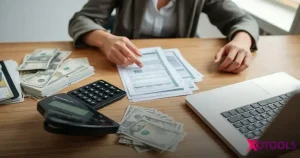ADVERTISEMENT
Are you looking to manage your finances better? Budgeting apps can transform the way you handle money!
These handy tools allow users to track expenses, set savings goals, and make informed financial decisions effortlessly.
In this post, we will dive into the essentials of budgeting apps, evaluate their features, and offer tips for maximizing their benefits.
What are Budgeting Apps?
Budgeting apps are digital tools designed to help people manage their money. They allow users to track income and expenses in real-time. With these apps, you can easily see where your money is going and identify spending patterns.
These apps often come with features like budget creation and expense categorization. Many of them even send alerts when you’re close to exceeding your budget limits. This helps keep your spending in check and encourages better financial habits.
Using budgeting apps can make financial management less stressful. They provide an organized view of your finances and can make saving money feel more achievable. If you want to take control of your finances, budgeting apps are a great starting point.
Top Features of Effective Budgeting Apps
One of the top features of effective budgeting apps is the ability to categorize expenses automatically. This means that whenever you make a purchase, the app can sort it into different categories like food, entertainment, or bills. This helpful feature lets you see where your money is going without any extra work.
An effective budgeting app also includes goal-setting options. You can set savings goals for specific items, like a vacation or a new gadget. This keeps you motivated and gives you a clear target to work towards as you manage your finances.
Lastly, the best budgeting apps offer budget alerts and notifications. These tools remind you when you’re close to reaching your budget limit or when a bill is due. Having these reminders helps you stay on track and avoid overspending so you can enjoy better financial health.
How to Choose the Right Budgeting App for You

Choosing the right budgeting app starts with understanding your needs. Think about what features are most important to you, like tracking expenses, setting savings goals, or syncing with your bank accounts. Writing down your priorities can help narrow down your options and ensure you find an app that fits your lifestyle.
Next, consider the user experience. A good budgeting app should be easy to navigate and visually appealing. Try out a few options to see which one feels comfortable for you. Most apps offer free trials, so take the time to explore and see how each app works before making a commitment.
Lastly, check user reviews and ratings to see what other people think about the apps you’re considering. Users often share helpful insights about how the app performs in real-life situations. This can give you a better idea of which budgeting app might help you manage your finances most effectively.
Best Budgeting Apps Reviewed
When it comes to the best budgeting apps, one of the top contenders is Mint. Mint offers a user-friendly interface, allowing you to easily track your spending and manage budgets. It automatically categorizes your expenses and sends helpful notifications when you exceed your limits, keeping you on track.
Another great option is YNAB, which stands for You Need A Budget. YNAB is perfect for those who want to take a proactive approach to financial management. It encourages users to allocate every dollar to a specific purpose, which can lead to better savings habits. Many users love its educational resources too.
Lastly, PocketGuard is a fantastic choice for anyone who wants to simplify their budgeting process. This app shows how much money you have left to spend after accounting for bills, goals, and necessities. By focusing on what you can spend, PocketGuard helps prevent overspending and allows you to enjoy guilt-free spending within your limits.
Tips for Using Budgeting Apps Effectively
To use your budgeting app effectively, start by setting clear and realistic financial goals. Whether it’s saving for a vacation or paying off debt, knowing what you want to achieve will guide your budgeting efforts. Make sure you regularly review these goals, adjusting them as your financial situation changes.
Another important tip is to regularly input and categorize your expenses. Many budgeting apps offer features that make this process simple. By keeping track of your spending, you can identify areas where you might be overspending and make necessary adjustments. Regular entries also keep your budget accurate and up to date.
Lastly, take advantage of the reports and insights your app provides. This data can help you understand your spending habits and make informed decisions. By analyzing where your money goes each month, you can make smarter choices that align with your financial goals, ensuring long-term success.
Common Mistakes to Avoid When Budgeting
Even with the best budgeting apps, some common mistakes can hold you back. One of the biggest is underestimating expenses or forgetting to include irregular costs like annual subscriptions or holiday spending. These omissions can throw off your entire budget.
Another frequent issue is not adjusting your budget as life changes. A new job, moving cities, or changes in family size can all affect your finances. Make it a habit to review and update your budget regularly to keep it aligned with your current reality.
Lastly, relying too heavily on automation can sometimes lead to less engagement with your finances. While budgeting apps simplify the process, it’s still important to stay actively involved and make conscious decisions about your money.
Benefits of Long-Term Budgeting Habits
Creating long-term budgeting habits can lead to greater financial stability and peace of mind. By consistently tracking your spending and saving toward your goals, you build a stronger financial foundation that supports your lifestyle and future plans.
These habits also promote smarter decision-making. When you know your limits and priorities, it’s easier to avoid impulse purchases and stay focused on what truly matters. Over time, this can lead to increased savings and fewer financial surprises.
With discipline and the right tools, long-term budgeting can reduce stress, improve relationships, and even open doors to bigger goals like homeownership or early retirement. Small steps today can make a big difference down the road.
Are Budgeting Apps Safe to Use?
Security is a common concern when using digital financial tools. Fortunately, most budgeting apps use bank-level encryption to protect your personal data. Many also offer two-factor authentication for an extra layer of safety.
When choosing an app, check its privacy policy and research how it handles user data. Reputable apps will be transparent about how your information is stored and whether it’s shared with third parties.
To stay safe, always download apps from official stores and keep them updated. Using strong, unique passwords and enabling security features helps ensure your financial information remains protected.
Financial Management FAQ
How can I effectively manage my finances?
Managing your finances effectively requires knowledge and planning, including setting up a realistic budget.
What features should I look for in a budgeting app?
Look for apps that allow you to track expenses, categorize purchases, and set financial goals.
Why is it important to review my budget regularly?
Regularly reviewing your budget and making adjustments is key to ensuring it reflects your current financial situation.







